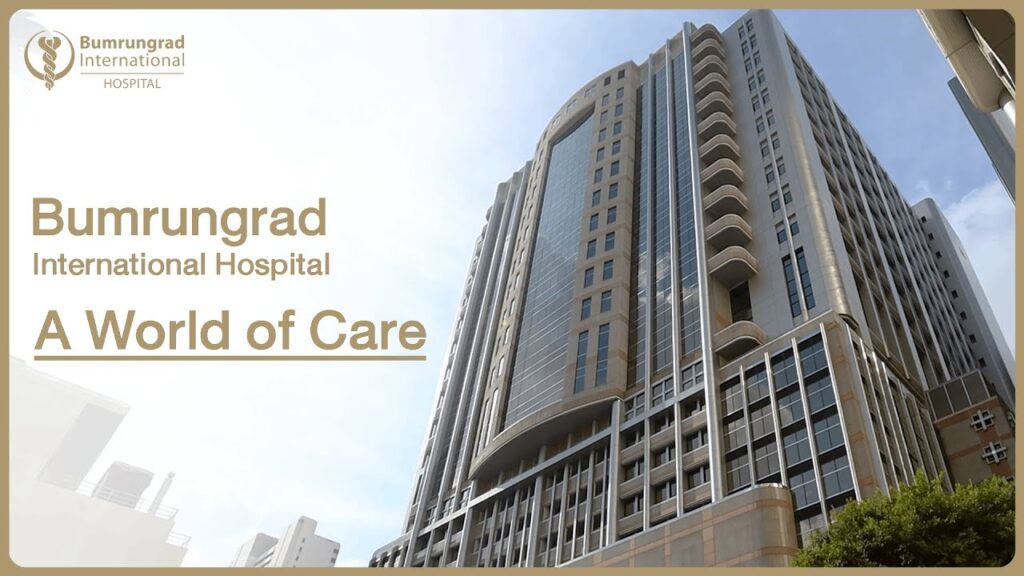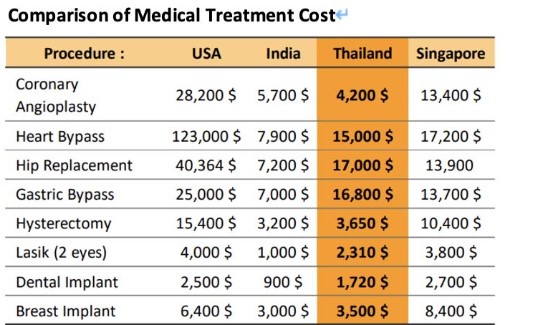Costs, Insurance, and Common Ailments for Expats
Retiring abroad is an exciting prospect, but healthcare is a critical consideration. Thailand has emerged as a top destination for expats, offering high-quality medical care at a fraction of the cost in Europe. This blog compares healthcare in Thailand and Europe, examines the cost of medical insurance for retirees in Thailand, and highlights the top ailments expats face conditions that are easily treated in Thailand’s world-class hospitals.
Healthcare Systems: Thailand vs. Europe
Quality and Accessibility
Thailand’s healthcare system is renowned for its affordability and efficiency. Private hospitals, such as Bumrungrad International and Bangkok Hospital, are equipped with state-of-the-art technology and staffed by English-speaking doctors trained abroad. Procedures like cardiac surgery, IVF, and diagnostic imaging, cost 50 – 80% less than in Europe or the U.S.

In contrast, Europe’s public healthcare systems, like the UK’s NHS, provide universal coverage but often suffer from long waiting times. Before the COVID 19 pandemic, NHS patients waited months for non-current procedures like hip replacements or cataract surgery. Post pandemic, these delays have worsened, with some patients waiting over a year for treatment. While European systems offer financial protection, expats may face bureaucratic hurdles and residency requirements before accessing free care.
Cost of Treatment
Thailand’s medical costs are significantly lower than in Europe. For example:
An MRI scan costs $190 in Thailand vs. $2,611 in the U.S. and similarly high prices in Europe.
A hospital stay in a Thai private hospital ranges from $100–$200 per night, compared to $1,000–$2,000 in the U.S. or Europe.
Routine dental care and doctor visits are 50–75% cheaper than in Western countries.
In Europe, while public healthcare is low-cost or free for residents, private care—often needed to avoid long waits—can be expensive. Countries like Switzerland and Germany require additional private insurance for comprehensive coverage, adding to costs.
Medical Insurance Costs for Expats in Thailand
Expats retiring in Thailand have several insurance options:
Local Thai insurance for an senior expat person, can start from $60 per month (around 2,000 THB) for basic coverage, making it an affordable choice. However, some insurers impose age limits (e.g., no new policies after 65) .
International insurance (e.g., Cigna or Bupa) offers broader coverage, including emergency evacuation, but costs more—around $200–$400 per month for retirees over 65.
A 67 year old expat might pay 200,000 THB ($5,500) annually for comprehensive worldwide coverage (excluding the U.S.), while Thailand only plans can be cheaper. Some retirees opt to self-insure, given Thailand’s low treatment costs, but this carries risks for major emergencies.

Visa Requirements
Thailand’s retirement visa requires health insurance, so expats must factor this into their budget. Policies must meet minimum coverage thresholds, typically $10,000 for inpatient care.
Waiting Times: Thailand’s Advantage over Europe
One of Thailand’s biggest draws is minimal waiting time. Private hospitals offer same day appointments and quick access to specialists—unlike Europe’s public systems, where non urgent procedures can take months. For expats used to NHS delays, Thailand’s efficiency is a major benefit.
Top 5 Ailments Affecting Expats in Thailand
Apart from road accidents, being the main reason for hospitilisation and death, expats in Thailand commonly face these treatable conditions:
1. Dengue Fever – A mosquito borne illness prevalent in rainy seasons. Symptoms include high fever, joint pain, and rash. Thai hospitals effectively manage cases with hydration and monitoring.

2. Food Poisoning & Gastrointestinal Infections – Contaminated food or water can cause bacterial infections. Thailand’s hospitals provide quick treatment with IV fluids and antibiotics.
3. Respiratory Illnesses – Pollution and seasonal changes lead to bronchitis or pneumonia. Private hospitals offer prompt care with specialist consultations.
4. Leptospirosis – A bacterial infection from contaminated water. Early detection and antibiotics in Thai hospitals prevent severe complications.
5. Hypertension & Diabetes – Common among aging expats. Thailand’s hospitals provide affordable chronic disease management, including regular checkups and medication.
Conclusion
Thailand’s healthcare system offers expats high-quality, affordable care with minimal waiting times—a stark contrast to Europe’s overburdened public systems.
Medical insurance for retirees is reasonably priced, with options ranging from $60 to $400 per month depending on coverage.
Combined with Thailand’s ability to treat common expat ailments efficiently, it’s no wonder the country remains a top retirement destination.


